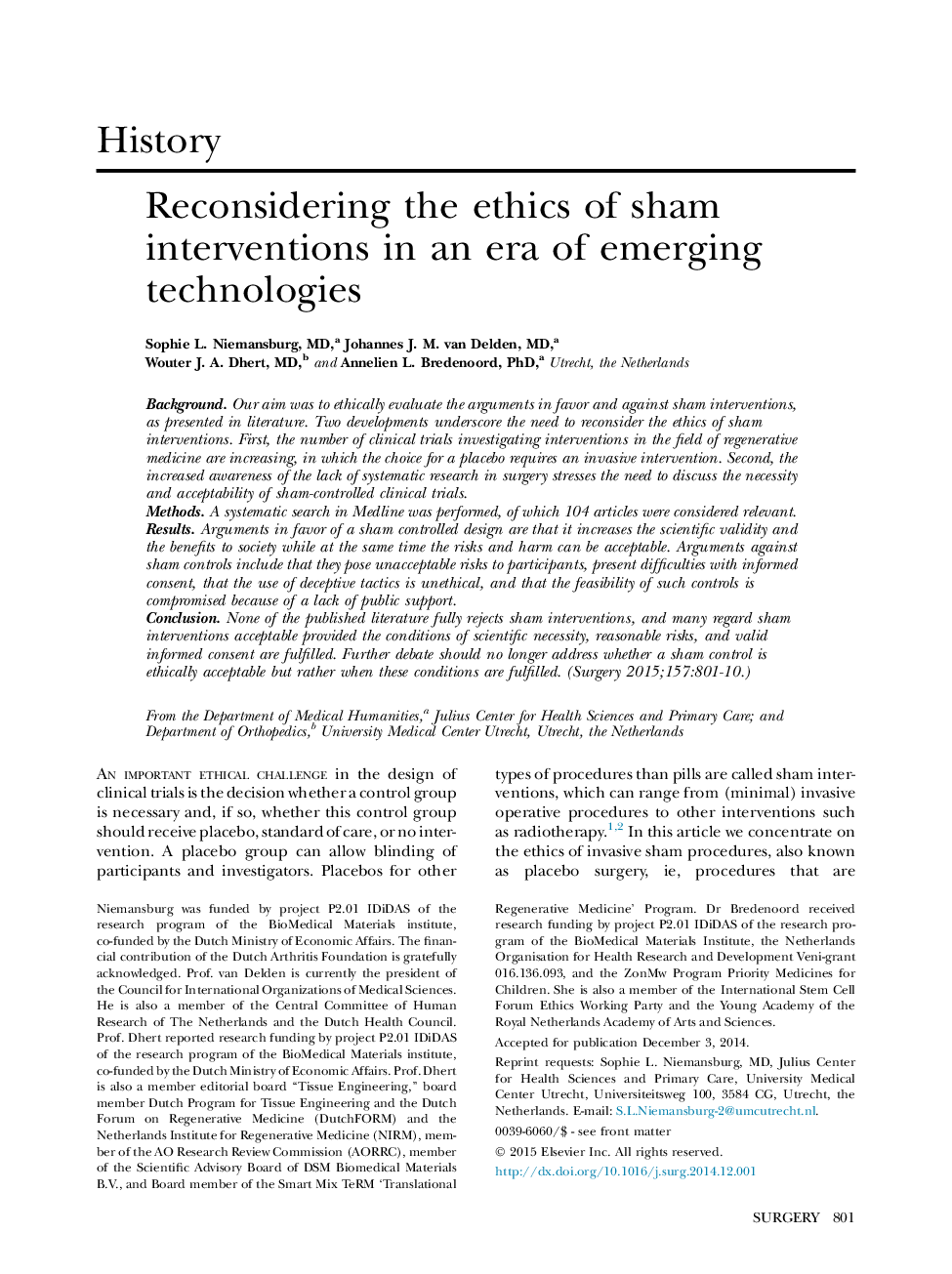| Article ID | Journal | Published Year | Pages | File Type |
|---|---|---|---|---|
| 4307188 | Surgery | 2015 | 10 Pages |
BackgroundOur aim was to ethically evaluate the arguments in favor and against sham interventions, as presented in literature. Two developments underscore the need to reconsider the ethics of sham interventions. First, the number of clinical trials investigating interventions in the field of regenerative medicine are increasing, in which the choice for a placebo requires an invasive intervention. Second, the increased awareness of the lack of systematic research in surgery stresses the need to discuss the necessity and acceptability of sham-controlled clinical trials.MethodsA systematic search in Medline was performed, of which 104 articles were considered relevant.ResultsArguments in favor of a sham controlled design are that it increases the scientific validity and the benefits to society while at the same time the risks and harm can be acceptable. Arguments against sham controls include that they pose unacceptable risks to participants, present difficulties with informed consent, that the use of deceptive tactics is unethical, and that the feasibility of such controls is compromised because of a lack of public support.ConclusionNone of the published literature fully rejects sham interventions, and many regard sham interventions acceptable provided the conditions of scientific necessity, reasonable risks, and valid informed consent are fulfilled. Further debate should no longer address whether a sham control is ethically acceptable but rather when these conditions are fulfilled.
